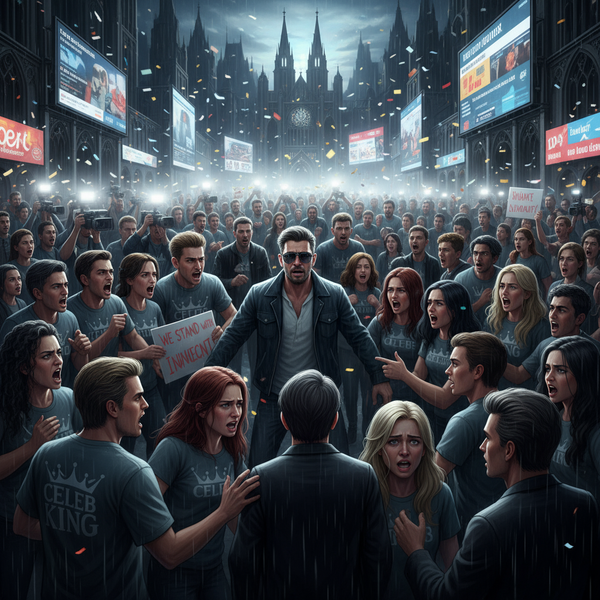The Comedy Crackdown: Was Jimmy Kimmel's Suspension a Blow to Free Speech? #KimmelControversy #Censorship
By Anshika Jain
In the late-night television world, where sharp political satire is a staple, a stunning and unprecedented event has unfolded: the indefinite suspension of a major network talk show. The abrupt removal of Jimmy Kimmel Live! from ABC's schedule has sparked a global controversy, a fiery debate pitting free speech against corporate responsibility. The shocking decision has left Hollywood stunned and the public divided, with many asking: Is this the end of a comedian's right to push boundaries, or a justified consequence for going too far?
The Context: A Tragedy Becomes a Political Firestorm
The drama began after Jimmy Kimmel's on-air remarks following the shooting death of conservative activist Charlie Kirk. In his monologue, Kimmel accused the "MAGA Gang" of trying to "capitalize on the murder" and attempting to portray the alleged shooter as anything but "one of them." His comments, perceived by many as "offensive" and "insensitive," were widely criticized by conservative figures. The situation was then escalated by the chairman of the Federal Communications Commission (FCC), who publicly warned that local broadcasters could face consequences for airing Kimmel's show, suggesting a potential for "fines or license revocation."
Within hours, major ABC affiliates, including Nexstar Media Group, announced they would stop broadcasting the show. Faced with a massive affiliate rebellion and political pressure, ABC followed suit, suspending the show indefinitely. The incident revealed a fragile relationship between corporate interests, political pressure, and a comedian's right to free expression. This isn't just a story about a joke gone wrong; it's a testament to the immense power of a political movement to influence corporate decisions.
The Public Reaction: A Battle Over Consequences vs. Censorship
The public reaction was immediate and deeply polarized. On one side, Hollywood and many viewers came to Kimmel's defense. Fellow late-night hosts like Stephen Colbert and Jon Stewart expressed their solidarity, with Colbert calling the suspension "blatant censorship" and a dangerous precedent. Former President Barack Obama also weighed in, stating that the move was a new and dangerous level of "government coercion" designed to muzzle dissent. This viewpoint frames the incident as a direct attack on the First Amendment and a troubling sign of a chilling effect on speech.
On the other side of the debate, critics argued that the suspension was not censorship, but a justified consequence for making "vile, disgusting lies" and misrepresenting facts during a sensitive time. For them, Kimmel's show crossed a line from satire into misinformation and that his employer had a right, and a responsibility, to take action. The sentiment among his detractors is that in a politically charged environment, a host's words can be dangerous and that no one is entitled to a platform, especially if they are seen as spreading falsehoods. This perspective highlights the clash between a comedian's platform and the public's desire for accountability, particularly on an issue as serious as political violence.
The Implications: A Dangerous Precedent?
The fallout from this controversy has significant implications for the future of entertainment and journalism. The suspension of a major show due to political pressure could set a new precedent for corporate self-censorship. It raises the question of whether broadcasters and comedians will now be forced to shy away from politically charged content for fear of being pulled off the air. This could lead to a less vibrant and less critical media landscape.
Furthermore, it forces a critical discussion about the role of comedy in public discourse. How far is "too far" for a comedian, and who gets to decide? Is the line defined by a network's corporate interests, the threats of a government regulator, or the fluctuating public sentiment of a digital mob? The financial and reputational damage to both Kimmel and ABC may influence how other networks approach similar situations in the future. As the lines between entertainment and politics continue to blur, this incident serves as a powerful and sobering reminder of the very real consequences that can arise when a late-night joke meets a political firestorm.
Allegedly, the news – Author: Anshika Jain




